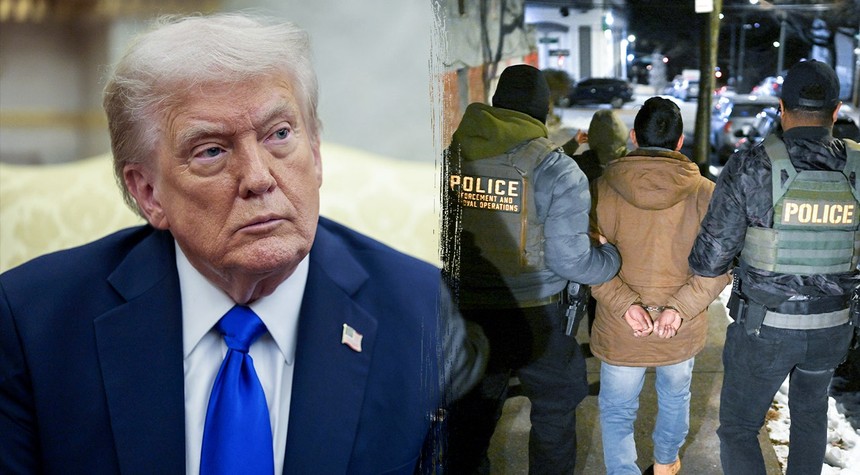President Donald Trump made clear during a Sunday interview that he believes Immigration and Customs Enforcement operations have been insufficiently aggressive, pushing back against critics who claim federal agents have overstepped their authority during recent enforcement actions.
The facts are straightforward. ICE agents have conducted operations across the country, including incidents in Chicago’s Irving Park neighborhood where tear gas was deployed and in various immigration courthouses where physical confrontations have occurred. These operations have generated protests from immigration rights activists and sparked legal challenges in multiple jurisdictions.
When confronted with footage showing an ICE agent physically restraining a woman at an immigration courthouse and agents breaking car windows during enforcement operations, Trump did not equivocate. Asked directly whether these raids had gone too far, the president responded with a clear negative, arguing instead that enforcement efforts have been hampered by judicial interference.
The president specifically identified what he termed “liberal judges” appointed during the Obama and Biden administrations as the primary obstacle preventing ICE from executing its mission more effectively. This represents a consistent theme from the Trump administration regarding the role of the federal judiciary in immigration enforcement matters.
The logic here is simple. ICE agents are tasked with enforcing immigration law as written by Congress. When individuals in the country illegally resist arrest or attempt to evade federal agents, law enforcement must use appropriate force to execute lawful orders. The question is not whether ICE should enforce the law, but whether judges should be preventing them from doing so through injunctions and restrictive rulings.
Protests have erupted in multiple locations, including Paramount, California, and downtown Los Angeles, where immigration rights supporters have confronted law enforcement. These demonstrations reflect the broader political divide over immigration enforcement, with progressive activists arguing for reduced enforcement and conservatives maintaining that existing law must be upheld.
The judicial appointment angle cannot be dismissed. Federal judges hold lifetime appointments and wield enormous power over executive branch operations through their ability to issue nationwide injunctions and interpret statutory authority. If judges appointed by previous administrations are systematically ruling against ICE operations, this represents a significant structural challenge to the current administration’s enforcement priorities.
Trump’s position reflects a fundamental disagreement about the proper scope of immigration enforcement. The president clearly believes that vigorous enforcement, including the use of force when suspects resist, falls within appropriate bounds. His critics argue that recent operations have been excessively aggressive and have targeted individuals without proper legal justification.
The underlying issue remains unresolved. America has immigration laws on the books. Either those laws will be enforced as written, or they will be effectively nullified through selective prosecution and judicial intervention. The president has made his position abundantly clear: enforcement should be stronger, not weaker, and the primary obstacle is not operational capacity but judicial obstruction.
Related: Trump Administration Defeats Proposed UN Global Shipping Tax in Final Hour

